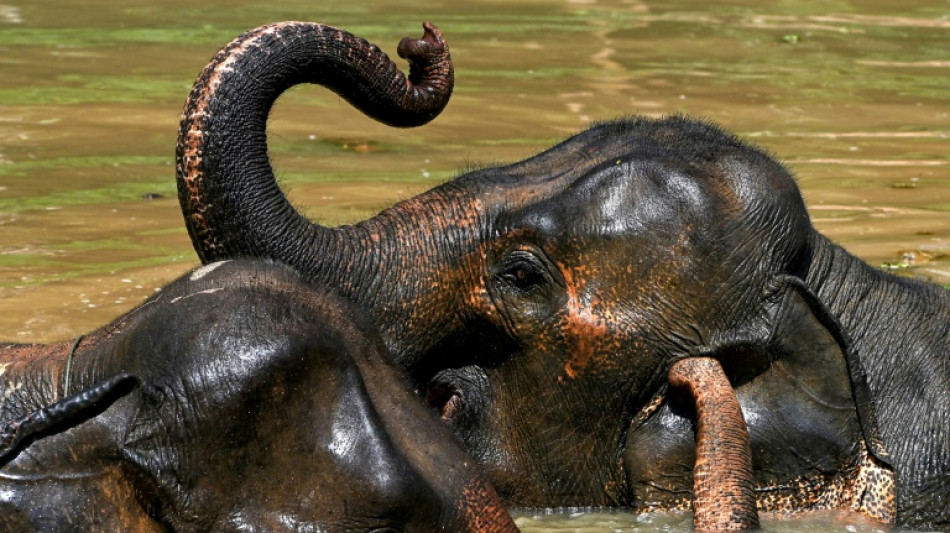
-
 Sinner's former physio to blame for failed dope tests, says ex-physical trainer
Sinner's former physio to blame for failed dope tests, says ex-physical trainer
-
Germany slams Trump tariffs, US tech titans in crosshairs

-
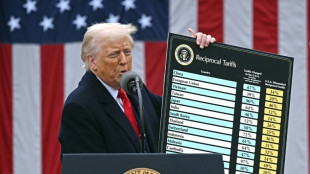 Trump tariff blitz sparks retaliation threats, economic fears
Trump tariff blitz sparks retaliation threats, economic fears
-
Search for Malaysia's long missing MH370 suspended

-
 Hungary announces ICC withdrawal as Israel's Netanyahu visits
Hungary announces ICC withdrawal as Israel's Netanyahu visits
-
Trump's tariffs sting Asian giants, including US allies
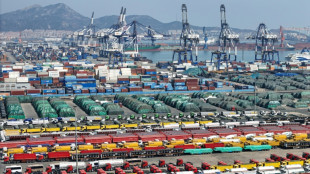
-
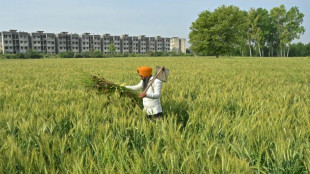 India says 'examining the implications' of US tariffs
India says 'examining the implications' of US tariffs
-
Evenepoel set to make injury return at Tour de Romandie

-
 USA sole bidder for 2031 Women's World Cup, UK set to host in 2035 - Infantino
USA sole bidder for 2031 Women's World Cup, UK set to host in 2035 - Infantino
-
McLaren's Norris says it's 'our turn' for success

-
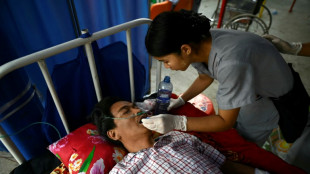 Lessons and liquids: buried alive in Myanmar's earthquake
Lessons and liquids: buried alive in Myanmar's earthquake
-
Trump tariffs spark fears for Asian jobs, exporting sectors
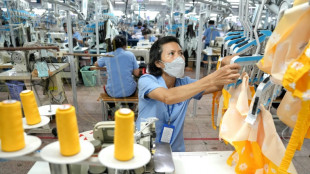
-
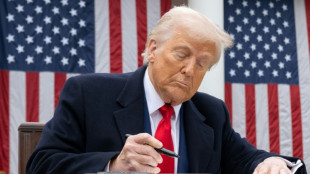 Stocks and dollar sink, havens rally as Trump tariffs fan trade war
Stocks and dollar sink, havens rally as Trump tariffs fan trade war
-
Runners fly to North Korea for first post-Covid Pyongyang Marathon
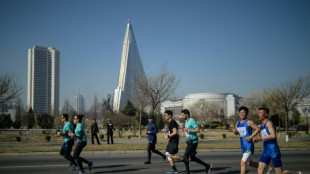
-
 Hamilton rubbishes claims he's lost faith in Ferrari
Hamilton rubbishes claims he's lost faith in Ferrari
-
Nintendo Switch 2 sparks excitement despite high price

-
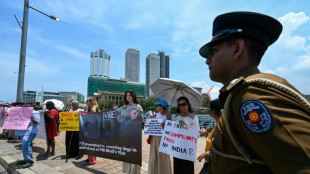 Sri Lanka's crackdown on dogs for India PM's visit sparks protest
Sri Lanka's crackdown on dogs for India PM's visit sparks protest
-
S Korea police raise security levels ahead of impeachment verdict

-
 China vows 'countermeasures' to sweeping new US tariffs
China vows 'countermeasures' to sweeping new US tariffs
-
Trump jolts allies, foes and markets with tariff blitz
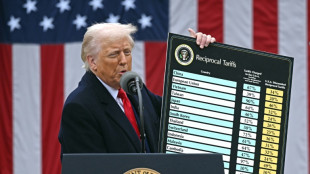
-
 France says EU to target US online services after Trump tariffs
France says EU to target US online services after Trump tariffs
-
Tsunoda vows to bring 'something different' after Red Bull promotion

-
 Verstappen not happy with Tsunoda-Lawson Red Bull swap
Verstappen not happy with Tsunoda-Lawson Red Bull swap
-
Experts accuse 54 top Nicaragua officials of grave abuses
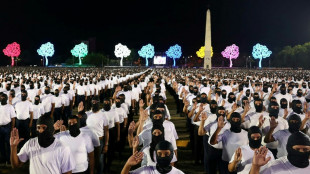
-
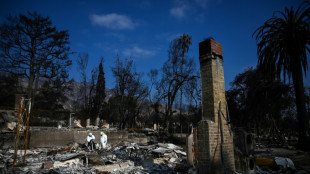 Remains of 30th victim of Los Angeles fires found
Remains of 30th victim of Los Angeles fires found
-
EU to target US online services after Trump tariffs: France

-
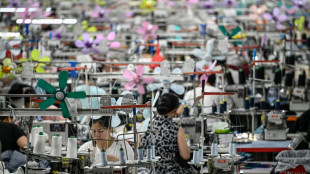 How Trump's 'liberation day' tariffs will impact China
How Trump's 'liberation day' tariffs will impact China
-
Malaysia suspends search for long-missing flight MH370

-
 Search for long-missing flight MH370 suspended: Malaysia minister
Search for long-missing flight MH370 suspended: Malaysia minister
-
Europe hits out at Trump tariffs, keeps door open for talks

-
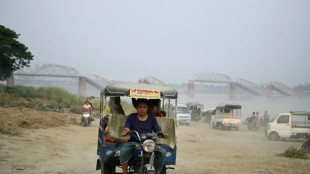 Myanmar's junta chief to head to Bangkok summit as quake toll surpasses 3,000
Myanmar's junta chief to head to Bangkok summit as quake toll surpasses 3,000
-
Lawson vows to prove he belongs in F1 after shock of Red Bull axing

-
 Australia sweats through hottest 12 months on record: official data
Australia sweats through hottest 12 months on record: official data
-
Livestock theft is central to jihadist economy in west Africa
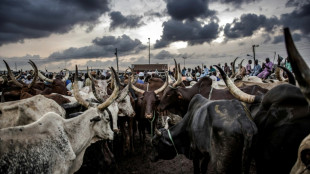
-
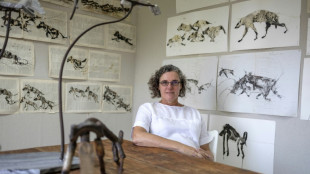 South African artist champions hyenas in 'eco-queer' quest
South African artist champions hyenas in 'eco-queer' quest
-
Danish PM in 'unity' Greenland visit amid US takeover threats

-
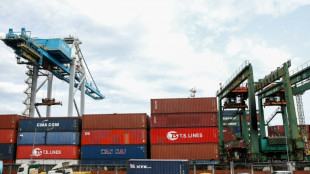 Taiwan says US tariffs 'highly unreasonable'
Taiwan says US tariffs 'highly unreasonable'
-
Lawson says ruthless Red Bull axing was 'tough to hear'

-
 Heat humble Celtics for sixth straight win, Thunder roll on
Heat humble Celtics for sixth straight win, Thunder roll on
-
Trump escalates trade war with sweeping global tariffs
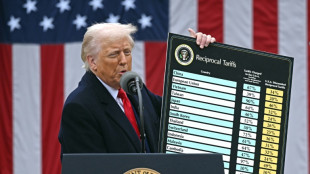
-
 Japan says US tariffs 'extremely regrettable', may break WTO rules
Japan says US tariffs 'extremely regrettable', may break WTO rules
-
South Koreans anxious, angry as court to rule on impeached president
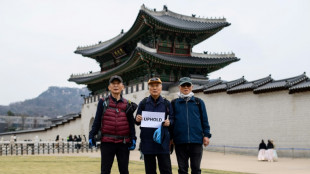
-
 Juve at in-form Roma with Champions League in the balance
Juve at in-form Roma with Champions League in the balance
-
Injuries put undermanned Bayern's title bid to the test

-
 Ovechkin scores 892nd goal -- three away from Gretzky's NHL record
Ovechkin scores 892nd goal -- three away from Gretzky's NHL record
-
Australian former rugby star Petaia signs for NFL's Chargers

-
 China says opposes new US tariffs, vows 'countermeasures'
China says opposes new US tariffs, vows 'countermeasures'
-
Athletics world watching as 'Grand Slam Track' prepares for launch

-
 Heat humble Celtics for sixth straight win, Cavs top Knicks
Heat humble Celtics for sixth straight win, Cavs top Knicks
-
Quake-hit Myanmar's junta chief to head to Bangkok summit
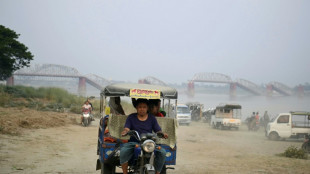

Researchers analyse DNA from dung to save Laos elephants
Slow and silent, former logging elephant Mae Khoun Nung emerges from a forest in northern Laos and follows her guide to an animal hospital for a check-up.
Once abundant in the forests of Laos, Asian elephants like her have been decimated by habitat destruction, gruelling labour in the logging industry, poaching and scarce breeding opportunities.
But conservationists are hoping DNA analysis of elephants' dung will help them track both captive and wild tuskers, so they can secure a healthy genetic pool and craft an effective breeding plan to protect the species.
Laos -- once proudly known as "Lane Xang" or "Land of a Million Elephants" -- has between 500 and 1,000 of the animals left, just one-third of the population two decades ago, according to conservation group WWF-Laos.
Around 10 elephants die each year for every one to two born, a rate that puts the animals at risk of dying out completely in the Southeast Asian nation.
"The ultimate goal would be to secure a healthy population of captive elephants to act as a genetic reservoir if the wild population collapses," wildlife biologist Anabel Lopez Perez told AFP at her laboratory at the Elephant Conservation Center (ECC) in Sainyabuli province.
Once researchers learn how many individual elephants are in the country -- by testing DNA-containing cells in dung -- Perez said a breeding plan will help them manage genetic diversity, prevent inbreeding and produce healthier calves that could be introduced into the wild to bolster the declining population.
- Elephant hospital -
At the hospital of the ECC, which shelters 28 elephants at its 500-hectare (1,200-acre) sanctuary, Mae Khoun Nung backs into a tall metal scaffolding structure, designed specially for check-ups on the animals.
Sounthone Phitsamone, who manages the centre's elephant keepers and acts as an assistant vet, taps the animal's leg and she calmly raises her foot for him to check.
Using a knife, he slices out the cracks and gaps in her hard, mud-baked nail.
Mae Khoun Nung spent her adult life in logging operations until she was given to the ECC by her owner in 2014 after work dried up and it became increasingly difficult to support her.
Elephants like her once roamed across much of Asia, but are now restricted to less than a fifth of their original range, according to WWF.
Their numbers in the wild have fallen by about half since the early 1900s, with only 40,000 to 50,000 left, the organisation says.
In the Nam Poui National Protected Area, researchers are now traversing the rugged hills and forests, collecting DNA from faecal samples of the area's 50 to 60 remaining wild elephants.
WWF-Laos, which is collaborating with the ECC and the Smithsonian Institution on the project, said the DNA analysis from dung would allow researchers to identify individual elephants, determine their sex, track their movements and understand familial relationships within herds.
"Although Nam Poui NPA represents a significant habitat for one of the few large wild elephant populations remaining in Laos, we lack precise data about its composition," WWF-Laos said in a statement to AFP.
-- Decreasing numbers --
In 2018, a government ban on illegal logging -- an industry that used elephants to haul timber out of forests -- resulted in the animals being sent to work in the tourism sector, while others were sold off to zoos, circuses and breeders.
The ECC tries to buy and shelter captive elephants when they are put up for sale, but since 2010, just six pregnancies with three calves have resulted.
Many of the elephants at the centre are of an advanced age and in poor shape from years of arduous labour, Phitsamone told AFP.
Mae Khoun Nung is 45 herself. On the bank of a reservoir, a short walk from the elephant hospital, she stops near the water's edge.
A small herd is diving under the surface and using their trunks to spray their backs, but she grew up isolated from other elephants and has had difficulty socialising.
Bathing is something she prefers to do alone.
Instead, she turns to a pile of banana plants left out for the herd and crunches on a snack.
Phitsamone has worked at the elephant centre for more than a decade and has no illusions about how difficult it will be to save his country's gentle giants.
"If we compare Laos with other countries, the number of elephants in the database is small and is decreasing," he said.
"I don't know if it will be OK in 20 or 30 years -- who knows."
B.Finley--AMWN


